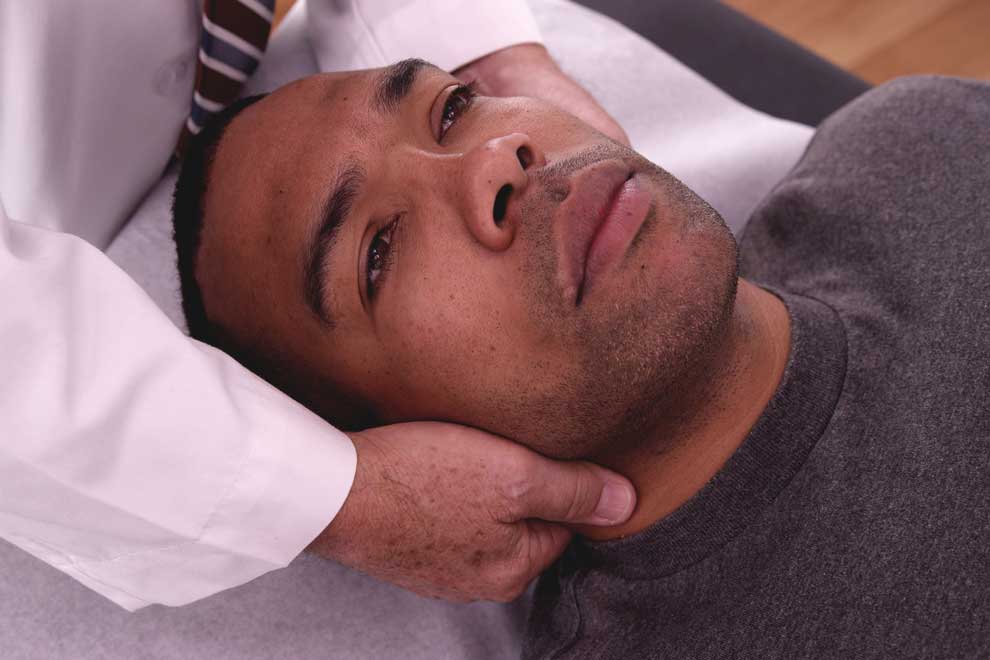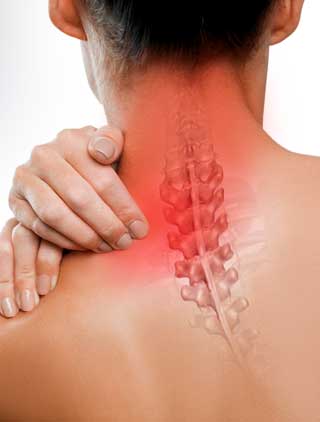
Cervical disc herniation treatment relies on osteopathic techniques to alleviate compression of the spinal nerve, improving mobility while reducing pain, tingling sensations, and numbness.
Cervical disc herniation is one of the more common conditions of the spine and can cause a tremendous amount of neck discomfort and pain. Like many other spinal disorders, this condition involves compressed nerves. In this case, the compression occurs as a result of a herniated or displace disc in the spine that compresses the spinal cord or a nerve. In some instances, both are compressed.
Herniations occur when the cartilage of a cervical disc are weakened, resulting in a split or tear that allows the interior gel-like substance to protrude. When that happens, the disc’s natural alignment is disrupted, and it may press against the spinal cord, a nerve root, or both. The effects can range from pain, weakness, and numbness to loss of motor skills, awkward gait, and loss of balance.
The exact cause of any herniated disc can often be difficult to determine. In many instances, patients experience gradual weakening or increased discomfort. At other times, the onset can be more sudden and the causes easier to pinpoint. As a rule, though, the most common causes for this condition include:
The symptoms of this type of herniation vary depending upon the area of compression. If the disc is compressing a nerve, you may experience:
In cases where the spinal cord is being compressed, the symptoms can be even more serious. For example, you may experience:
Minor nerve compression can typically be treated without the need for more invasive procedures like surgery. However, any serious loss of mobility, motor function, or coordination may require more advanced intervention. In either instance, it is important to seek medical attention to ensure proper diagnosis and treatment.
Our team can provide the osteopathic treatment you need to manage pain and restore lost function. We rely on conservative, non-invasive manipulation techniques to help most patients manage their pain and expedite their recovery. In addition, osteopathic care can help to reduce instances of spasms, and alleviate pressure on the affected area.

Neck conditions include muscle and spinal ailments or injuries that cause various levels of pain, tightness, reduced range of motion, numbness, headaches, and tingling sensations in the arms and hands.
Cervical Disc HerniationCervical RadiculopathyDegenerative Disc DiseaseNeck Muscle SpasmNeck PainThoracic Outlet Syndrome
If you are experiencing any of these symptoms, contact Dr. Tafler today to schedule an appointment for an examination and diagnosis. Once the source of your pain has been identified, he will work with you to develop the right course of treatment to reduce your pain and get you on the path to a speedy recovery.